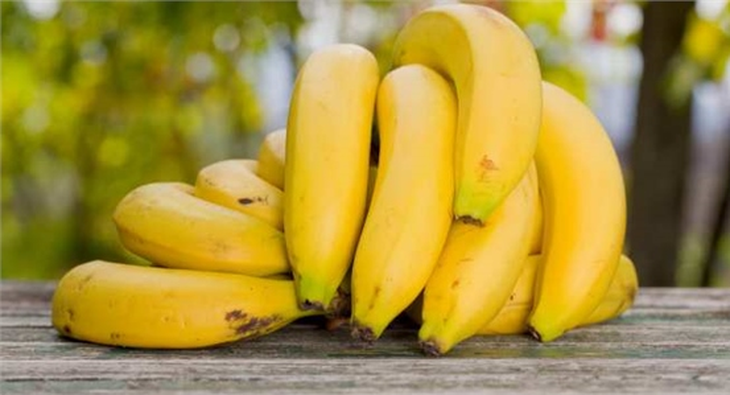
Bananas are very good for health but are a food that people with kidney failure should avoid because they are rich in potassium - Illustration photo
Below is a table of food suggestions for people with chronic kidney failure:
Should eat:
Low protein starch: white rice, cellophane noodles, sweet potatoes soaked/washed thoroughly.
High quality protein: egg whites, low fat milk, fresh fish, chicken breast.
Low potassium vegetables: cabbage, cauliflower, apples, pears, watermelon.
Things to avoid:
Foods rich in phosphorus: animal organs, condensed milk, dried shrimp, sausages, processed cheese.
Salty foods: fish sauce, canned food, instant noodles, pickles.
Foods high in potassium: bananas, avocados, spinach, oranges, grapefruit.
Nutritional solutions for chronic kidney disease patients
Dr. Tran Tuyet Trinh, Bach Mai Hospital, recommends: "Patients need to be consulted by a nutritionist to build a personalized menu. It is necessary to periodically monitor electrolyte, urea, and creatinine levels to adjust food rations promptly."
In addition, you should divide your meals into smaller portions throughout the day, prioritize steaming and boiling, and limit deep-frying. Combining light exercise such as walking and yoga helps improve overall health and mood.
Proper nutrition is a powerful "weapon" to help patients with chronic kidney failure fight the disease. Adhering to the 6 golden principles with the support of a specialist will help control the disease effectively, prolong life and improve quality of life.
Remember: Every choice on the dinner table today is a step towards protecting your health tomorrow.
Nutrition may determine the progression of chronic kidney failure
When kidney function declines, the body's ability to filter blood and eliminate toxins is also severely affected. According to Dr. Trinh, the kidneys are no longer able to remove excess substances such as water, potassium, phosphorus, etc., leading to a series of complications such as edema, electrolyte disturbances, and high blood pressure, which can be life-threatening.
"Proper nutrition not only helps preserve residual kidney function but also slows disease progression, prolonging the time of conservative treatment before dialysis is required," said Dr. Trinh. A scientific diet also improves symptoms of fatigue and nausea, maintains a better quality of life and limits complications of chronic kidney failure.
4 unexpected benefits from a reasonable diet
Many patients with kidney failure often abstain too much, causing malnutrition. A balanced, energy-rich and carefully selected nutritional plan will bring practical benefits:
Prevent malnutrition: Ensure adequate energy supply from starch sources such as white rice, thoroughly washed and soaked tubers, and cellophane noodles, to help the body maintain weight and muscle mass.
Metabolic balance : Control the amount of protein, salt, potassium and phosphorus in the diet, reducing metabolic pressure on the kidneys.
Delaying dialysis: Proper nutrition helps slow the progression of kidney disease, prolonging the time before dialysis intervention is required.
Symptom improvement : A diet with adequate energy and electrolyte control helps reduce fatigue, nausea, and improves mobility and optimism in patients.
Source: https://tuoitre.vn/thuc-pham-nen-va-khong-nen-lua-chon-thong-minh-de-bao-ve-than-20250501084030958.htm




![[Photo] Ha Giang: Many key projects under construction during the holiday season](https://vphoto.vietnam.vn/thumb/1200x675/vietnam/resource/IMAGE/2025/5/1/8b8d87a9bd9b4d279bf5c1f71c030dec)
![[Photo] Binh Thuan organizes many special festivals on the occasion of April 30 and May 1](https://vphoto.vietnam.vn/thumb/1200x675/vietnam/resource/IMAGE/2025/5/1/5180af1d979642468ef6a3a9755d8d51)


















![[Photo] Feast your eyes on images of parades and marching groups seen from above](https://vphoto.vietnam.vn/thumb/1200x675/vietnam/resource/IMAGE/2025/4/30/3525302266124e69819126aa93c41092)






































































Comment (0)